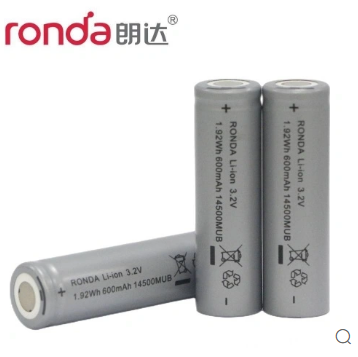Lithium-ion batteries have revolutionized the portable electronics industry, and they are now increasingly prevalent in electric vehicles and renewable energy systems. Lithium-ion batteries come in different chemistries, including Lithium Iron Phosphate (LiFePO4) and Lithium Nickel Cobalt Aluminum Oxide (NCA or LiNiCoAlO2). In this article, we will discuss the key differences between these two types of lithium-ion batteries.

1. Energy Density One of the most significant differences between LiFePO4 and NCA batteries is their energy density. NCA batteries offer higher energy density and can store more energy per unit volume or weight than LiFePO4 batteries. NCA batteries are also lighter and smaller than their LiFePO4 counterparts. However, LiFePO4 batteries are safer and more stable than NCA batteries, making them a popular choice for electric vehicles. 2. Cycle Life The cycle life of a battery refers to the number of charge and discharge cycles it can undergo before its performance starts to degrade. LiFePO4 batteries have a longer cycle life than NCA batteries, which means they can last longer when used under the same conditions. While both batteries can last for several years, LiFePO4 batteries have an expected cycle life of up to 2000 cycles, while NCA batteries have a cycle life of up to 1000 cycles. 3. Charging Time Charging time is another essential factor to consider when choosing a lithium-ion battery. LiFePO4 batteries have a slower charging time than NCA batteries. It takes longer to charge a LiFePO4 Battery fully, but they can maintain a more stable performance over time than NCA batteries. 4. Safety Safety is perhaps the most crucial factor when choosing a lithium-ion battery. LiFePO4 batteries are inherently safer than NCA batteries because they are less likely to overheat and catch fire. LiFePO4 batteries have a lower risk of thermal runaway, which occurs when a battery becomes too hot, leading to a chain reaction that causes the battery to explode or catch fire. Conclusion When choosing a lithium-ion battery for your project, it's essential to understand the differences between LiFePO4 and NCA batteries. NCA batteries have higher energy density and faster charging time, while LiFePO4 batteries are safer and more stable, last longer, and have a slower charging time. Ultimately, the choice between LiFePO4 and NCA batteries depends on the intended use and the project's requirements.



